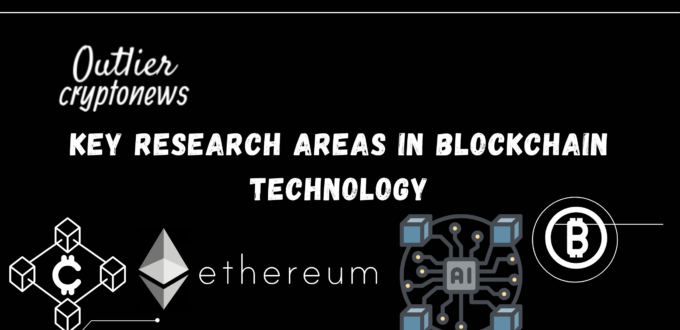Blockchain technology has occurred as a revolutionary force, reshaping how we think about data security, transparency, and trust. Originally devised for cryptocurrency transactions, its potential applications span multiple sectors, including finance, healthcare, supply chain, and beyond. As the technology evolves, so does the need for targeted research to unlock its full potential. This blog will explore key areas to focus on for research in blockchain technology.
1. Scalability Solutions
One of the immediate challenges confronting blockchain technology is scalability. Current blockchain networks, such as Bitcoin and Ethereum, face limitations in transaction throughput and speed. Researching solutions like sharding, layer-2 protocols (e.g., Lightning Network), and alternative consensus mechanisms could significantly enhance transaction processing capabilities. Addressing scalability is crucial for mainstream adoption, especially in high-transaction environments like financial markets and e-commerce.
2. Interoperability
As various blockchain platforms emerge, the need for interoperability becomes more pronounced. Different blockchains often operate in silos, restricting their utility. Researching frameworks and protocols that enable seamless communication between heterogeneous blockchains can pave the way for a more integrated ecosystem. Projects like Polkadot and Cosmos are already exploring this area, but further research can provide more robust solutions for data sharing and collaboration across platforms.
3. Privacy Enhancements
While blockchain is lauded for its transparency, this very trait can pose privacy concerns. Many applications require sensitive data to remain confidential, especially in sectors like healthcare and finance. Researching advanced cryptographic techniques, such as zero-knowledge proofs and homomorphic encryption, can help create privacy-preserving solutions that allow data verification without exposing the underlying information. This research is vital for regulatory compliance and user trust.
4. Decentralized Finance (DeFi)
The DeFi movement has gained immense popularity, disrupting traditional financial models. However, the rapid growth of DeFi also brings challenges, such as security vulnerabilities and regulatory uncertainties. Targeted research into security protocols, risk assessment frameworks, and regulatory compliance mechanisms can enhance the safety and sustainability of DeFi platforms. Understanding the economic implications of DeFi and its impact on traditional finance is equally important, offering insights that can guide future innovations.
5. Smart Contract Security
Smart contracts are self-executing contracts with the terms of the arrangement directly written into code. While they offer significant advantages, they also introduce new security vulnerabilities. Research into formal verification methods and automated testing tools can help ensure the reliability of smart contracts. Additionally, developing best practices for smart contract development can minimize the risk of exploits and hacks, fostering trust in decentralized applications (dApps).
6. Governance Models
Effective governance is essential for the success of blockchain networks, particularly decentralized ones. Researching various governance models – such as on-chain versus off-chain governance – can help identify the most effective strategies for decision-making and conflict resolution. Understanding the implications of governance structures on network performance and community engagement is crucial for building resilient blockchain ecosystems.
7. Environmental Impact
The environmental impact of blockchain technology, particularly proof-of-work (PoW) systems, has come under scrutiny. Researching energy-efficient consensus mechanisms, such as proof-of-stake (PoS) and other alternatives, is vital for promoting sustainable blockchain practices. Additionally, exploring the potential of blockchain in tracking and reducing carbon footprints can position blockchain as a leader in the fight against climate change.
8. Tokenomics and Incentive Structures
Understanding the economic models behind blockchain projects is essential for their success. Researching tokenomics—how tokens are distributed, utilized, and valued—can provide insights into user engagement and network growth. Exploring different incentive structures and their impacts on user behavior can help design more effective ecosystems that encourage participation and investment, ultimately driving adoption.
9. Regulation and Compliance
As blockchain technology evolves, regulatory frameworks are beginning to take form. Researching the regulatory landscape and its importance for blockchain projects is essential for ensuring compliance and promoting innovation. Understanding how different jurisdictions approach blockchain regulation can help developers navigate legal challenges and create solutions that meet regulatory requirements without stifling creativity.
Conclusion
The potential of blockchain technology is vast, but unlocking its full capabilities requires focused research in several key areas. From scalability and interoperability to privacy, governance, and regulation, each of these domains presents unique challenges and opportunities. By targeting these research areas, we can pave the way for a more secure, efficient, and equitable digital future. As we continue to explore and innovate, the collaborative efforts of researchers, developers, and policymakers will be instrumental in shaping the evolution of blockchain technology and its applications across various industries.
Embracing this journey of discovery will not only enhance our understanding of blockchain but also enable us to harness its transformative power for the benefit of society as a whole.

